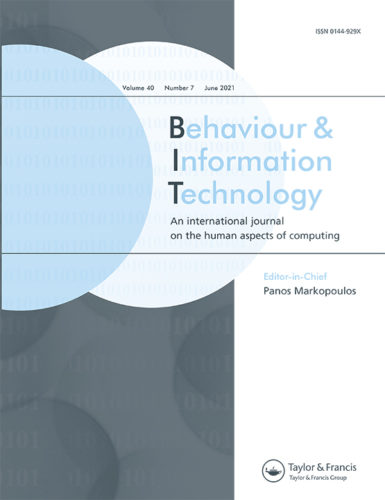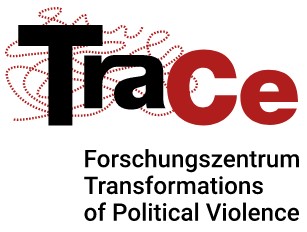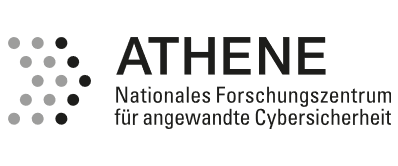We are happy to announce a call for papers:
Special Issue – Combating Information Warfare: User-Centric Countermeasures for Fake News and Misinformation
 The spread of fake news and misinformation has become a major issue in the digital age, with significant consequences for individuals and society especially during times of crisis. Examples include the Russian war against Ukraine and the COVID-19 pandemic, where misinformation has been used as a weapon to manipulate public opinion and sow discord. During these crises, vulnerability to misinformation and manipulation increases, as audiences use online spaces for collective sense-making, especially when limited authoritative information is available. Disaster-management personnel, public-health officials, political elites, and media elites have all expressed concern about misinformation and online manipulation during such times and have sought solutions to improve information quality during times of crisis.
The spread of fake news and misinformation has become a major issue in the digital age, with significant consequences for individuals and society especially during times of crisis. Examples include the Russian war against Ukraine and the COVID-19 pandemic, where misinformation has been used as a weapon to manipulate public opinion and sow discord. During these crises, vulnerability to misinformation and manipulation increases, as audiences use online spaces for collective sense-making, especially when limited authoritative information is available. Disaster-management personnel, public-health officials, political elites, and media elites have all expressed concern about misinformation and online manipulation during such times and have sought solutions to improve information quality during times of crisis.
Crisis Informatics researchers are uniquely positioned to understand and respond to this phenomenon. Their work focuses on how people use technology to communicate, coordinate, and respond to crises, as well as how technology can be designed and deployed to better support crisis management. Focusing on needs of these stakeholders can enhance the impact of methods for countering information warfare, as these individuals’ insights can help designers understand the role technology plays in this sociotechnical problem.
In this special issue, we aim to explore user-centric countermeasures for combating fake news and misinformation in the context of crisis informatics and human-computer interaction. We welcome innovative human-computer interaction techniques and methodologies relevant to the design, analysis, and evaluation of applications. Papers may be conceptual, theoretical, empirical, or technical in nature.
Some aspects that papers may address include:
- Studies of susceptibility to fake news and misinformation for individuals and society during crisis events
- Information warfare, and political dimensions of inadvertent misinformation and intentional manipulation during crises
- User-centric approaches to detecting and combating misinformation, reducing vulnerability to manipulation, or enhancing resilience in the context of crisis events
- Design and evaluation of tools and applications to measure misinformation, vulnerability, and impact in crises
- Ethical considerations in combating misinformation and manipulation
- Studies of collective sense-making in crises and its connection to misinformation
- Research methods that address concerns about data access in constrained environments or contexts hostile to observation
We invite researchers and practitioners from the disciplines of crisis informatics and human-computer interaction to submit original research articles, review articles, and case studies for this special issue.
Submission Instructions
- The highest scientific quality with practical impact is critical for each paper. All contributions will be rigorously peer reviewed.
- Publications must be original papers. If they are based on conference proceedings, additional contributions are necessary and need to be clearly outlined.
- The expected length is about 6,000-12,000 words.
- Please submit your paper using the format “Association for Computing Machinery (ACM) – Small”. All sections must be numbered, and submitted in single-spaced format.
- The submission site is https://rp.tandfonline.com/submission/create?journalCode=TBIT
- As an author you agree to review at least two submissions.
Important Dates
- 2023 February 1st – CfP published
- 2023 April 1st – Title and Abstract are welcome for feedback (1500 words) (via e-mail: bit@peasec.de)
- 2023 May 1st – Full submission of manuscript (submission system)
- 2023
July 1stAugust 1st – First Notifications - 2023
September 1stSeptember 15th – Revisions due (submission system) - 2023
October 15thNovember 1st – Second Notifications - 2023 December 1st – Final Versions (submission system)
- 2024 Special Issue published
Special Issue Guest Editors
- Christian Reuter, Science and Technology for Peace and Security (PEASEC), Technical University of Darmstadt, peasec.de/team/reuter
- Amanda Lee Hughes, Crisis Informatics Lab, Computer Science Department, Brigham Young University, https://cil.byu.edu
- Cody Buntain, College of Information Studies, University of Maryland, http://cody.bunta.in/
The Journal
Behaviour & Information Technology (https://www.tandfonline.com/journals/tbit20), a prestigious journal focusing on research on usability and user experience, human centred interaction, human-centred and user-centred design, and human aspects of the digital world, published by Taylor & Francis, with an Impact Factor of 3.32 and listed as top publication on the HCI Google Scholar list (https://scholar.google.de/citations?view\_op=top\_venues&hl=de&vq=eng\_humancomputerinteraction).
This special issue is supported by
- Research Center “Transformations of Political Violence” (TraCe), https://www.trace-center.de/en/
- National Research Center for Applied Cybersecurity ATHENE, http://www.athene-center.de


